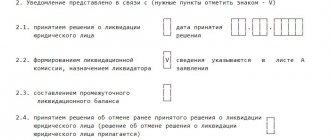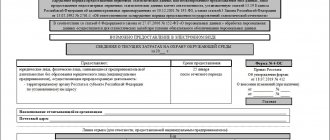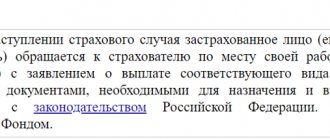In recommendation:
– primary accounting documents and registers; – forms of primary documents approved and not approved by law; – how to fill out primary documents; – receipt of accounting documents to the accounting department; – what to do if the received primary document records an illegal transaction; – how to correct errors in a document; – signatures on documents; – what to do if the enterprise does not have a chief accountant; – is it possible to replace the signature with a facsimile; – responsibility for failure to sign documents; – printing on documents; – translation of primary documents from foreign languages.
All financial and economic transactions of the enterprise must be documented.
Primary documents, accounting registers and other documents are the basis for:
- determination of objects of taxation and objects related to taxation;
- calculation of taxes and other obligatory payments;
- confirmation of income and expenses.
Thus, both accounting and taxation are impossible without accounting documents. Therefore, you will have to bear responsibility for their absence or incorrect completion and the resulting tax and accounting errors.
Accounting Rules
In accordance with Part 1 of Article 30 of Federal Law N 402-FZ, before the approval of federal and industry accounting standards provided for by this Federal Law, the rules for maintaining accounting records and drawing up accounting (financial) statements approved by the authorized federal executive authorities before the date of entry into force are applied. force of Federal Law N 402-FZ.
In this case, the specified rules for maintaining accounting records and preparing accounting (financial) statements are applied to the extent that does not contradict Federal Law N 402-FZ.
Primary accounting documents
Forms of primary accounting documents
Based on Part 4 of Article 9 of Federal Law No. 402-FZ, primary accounting documents are compiled according to forms approved by the head of the economic entity. Moreover, each primary accounting document must contain all the mandatory details established by Part 2 of Article 9 of Federal Law N 402-FZ.
From January 1, 2013, the forms of primary accounting documents contained in albums of unified forms of primary accounting documentation are not mandatory for use . At the same time, forms of documents used as primary accounting documents established by authorized bodies in accordance with and on the basis of other federal laws (for example, cash documents) continue to be mandatory for use.
Based on Part 1 of Article 7 and Article 9 of Federal Law No. 402-FZ, the head of an economic entity also determines the composition of the primary accounting documents used to document the facts of the economic life of the economic entity, and the list of persons who have the right to sign primary accounting documents**.
According to Part 4 of Article 9 of Federal Law N 402-FZ the forms of primary accounting documents used to document the facts of the economic life of an economic entity must be approved by the head of this economic entity.
Facts of economic life, documented in primary accounting documents
In accordance with Part 1 of Article 9 of Federal Law N 402-FZ, each fact of economic life is subject to registration as a primary accounting document.
Based on this, and also taking into account Part 2 of Article 1 of Federal Law N 402-FZ, documents that document facts of economic life that have not taken place, including those underlying imaginary and sham transactions, should not be accepted for accounting.
Documents used to document transactions with funds
Due to the loss of force from January 1, 2013, Federal Law of November 21, 1996 N 129-FZ “On Accounting”, the second paragraph of Part 3 of Article 9 of this Federal Law is not subject to application.
However, after December 31, 2012, the procedure for signing documents used to formalize transactions with funds continues to be regulated by regulatory legal acts approved by authorized bodies in accordance with and on the basis of the legislation of the Russian Federation. In particular, the Regulations on the procedure for conducting cash transactions with banknotes and coins of the Bank of Russia on the territory of the Russian Federation, approved by the Bank of Russia on October 12, 2011 N 373-P, the Regulations on the rules for the transfer of funds, approved by the Bank of Russia on June 19, 2012 N 383-P.
Mandatory details of the primary accounting document
Part 2 of Article 9 of Federal Law N 402-FZ establishes a list of mandatory details of the primary accounting document. The details included in this list are identical in composition and content to the mandatory details of the primary accounting document (including documents compiled according to the forms contained in the albums of unified forms of primary accounting documentation), provided for by Part 2 of Article 9 of the Federal Law of November 21, 1996 N 129-FZ "About accounting".
The legislation of the Russian Federation on accounting does not establish any restrictions on the inclusion in primary accounting documents of additional details to the mandatory ones. The inclusion of additional details to the mandatory ones in the primary accounting document is carried out by the organization if necessary (due to the nature of the fact of economic life drawn up by this document, the requirements of regulatory legal acts, management needs, technology for processing accounting information, etc.).
Primary accounting documents: new documents, new registers, new signing procedure
The changes affected both the forms of primary accounting documents and registers themselves, and instructions for their use.
Now the formative part of the document form contains the signatures and transcripts of the signatures of the following officials:
- those responsible for committing a fact of economic life;
- those responsible for registering the fact of economic life as a primary accounting document;
- responsible for the compliance of the data contained in the document with the facts of economic life.
If the primary document contains data to be reflected in the accounting registers, then the formal part must contain the signature of the official responsible for maintaining budget (accounting) records. In addition, the design part of the document form provides for the reflection of the position and signature of the performer with a transcript and contact information.
Several new documents have been added to the document forms “Unified system of accounting, financial, accounting and reporting documentation for public sector organizations”:
| Form code | Form name |
| 0504512 | Decision on business travel on the territory of the Russian Federation |
| 0504513 | Changing the Decision on Business Travel on the Territory of the Russian Federation |
| 0504514 | Cash book |
| 0504515 | Decision on a business trip to the territory of a foreign state |
| 0504516 | Changing the Decision on Business Travel to the Territory of a Foreign State |
| 0504517 | Decision on compensation for travel and baggage costs for persons working in the Far North and equivalent areas, and members of their families |
| 0504518 | Application justification for the purchase of goods, works, services of small volume |
| 0504520 | Accountable person's expense report |
In addition to documents, new forms of accounting registers have been added:
| Form code | Form name |
| Log of operations for correcting errors of previous years | |
| Journal of inter-reporting period transactions | |
| 0504093 | Journal of registration of incoming and outgoing cash orders |
| 0504094 | List of additional income of individuals subject to personal income tax and insurance premiums |
The above forms of electronic primary documents and electronic accounting registers are used when centralizing the powers of accounting to ensure information compatibility of state (municipal) information systems and information resources through which information interaction is carried out.
The use of new forms of primary documents and accounting registers is allowed only in electronic form. The need to fill out documents and registers exclusively on paper is established by Federal legislation or regulations adopted in accordance with it. An institution has the right , according to the document flow rules approved within the framework of its accounting policy, to provide for the formation of primary accounting documents on paper according to the forms of electronic documents in the absence of the technical ability to generate and store them in electronic form. In this case, it is necessary to submit an electronic image of such a document to the accounting service . An electronic image of a document is necessary to ensure the integration of information systems and the implementation of the principle of one-time data entry.
The use of new electronic documents and registers to reflect the facts of economic life is possible if this is provided for by the accounting policy of the institution.
Important changes have been made to the procedure for using an electronic digital signature (hereinafter referred to as EDS) when signing primary electronic documents. Now signing an electronic document is possible both with a qualified electronic signature and a simple digital signature. Which document allows the use of a simple digital signature is regulated by Appendix No. 5 to the order of the Ministry of Finance of Russia dated March 30, 2015 No. 52n “On approval of forms of primary accounting documents and accounting registers used by public authorities (state bodies), local government bodies, government bodies extra-budgetary funds, state (municipal) institutions, and Guidelines for their application” (hereinafter referred to as Order No. 52n).
So, for example, in the electronic document “Decision on a business trip on the territory of the Russian Federation”, reference information about the debt is signed by the person entrusted with accounting or another authorized person, a simple digital signature. A simple digital signature is signed by the head of the financial and economic unit or an authorized person and the information specified in the “Financial support” section of the electronic document “Decision on business travel on the territory of the Russian Federation”. The decision on a business trip is agreed upon by the head of the institution paying the travel expenses to the employee (centralized accounting department) and signed by a qualified digital signature. The head of the institution who sent the employee on a business trip approves the electronic document and signs it with a qualified digital signature.
Using the example of the electronic document “Decision on business travel on the territory of the Russian Federation,” it can be seen that the use of a simple digital signature is allowed when filling out the relevant sections by responsible employees . But the electronic document is finally signed and approved by a qualified digital signature of the manager . This must be taken into account when drawing up a document flow schedule between the accounting center and service agencies.
There are cases when, in order to fully reflect information about the facts of economic life in unified document forms, additional information is not provided. In this case, the institution has the right to include additional details in the primary accounting document, generated on the basis of a unified document form . In this case, information compatibility of information systems and information resources, through which the generation and exchange of information and documents in electronic form is carried out, must be ensured.
If, when exchanging information in the form of electronic documents, including in the exercise of centralized powers, the transfer of scanned copies of primary accounting documents generated on paper is provided, the responsibility for compliance of the scanned copy with the original document lies with the official responsible for processing the scanned document of fact of economic life . The document flow schedule (or other local regulatory act of the institution) can assign responsibility for the compliance of the document on paper to the employee who generated (transferred) such a scanned copy . The transfer of a scanned copy of the primary accounting document is subject to its signing with a qualified digital signature by an official responsible for the compliance of such a scanned copy with the original document.
The changes made to Order No. 52n are aimed at regulating issues related to the transfer of powers for maintaining budget (accounting) accounting to centralized accounting departments, as well as at the further transition to full electronic document flow between institutions.
You can read about how to organize the issuance of simple digital signatures by following the link.
Accounting registers
Forms of accounting registers
Based on Part 5 of Article 10 of Federal Law No. 402-FZ, the data contained in the primary accounting documents are subject to registration and accumulation in accounting registers, the forms of which are approved by the head of the economic entity. Moreover, each accounting register must contain all the mandatory details established by Part 4 of Article 10 of Federal Law No. 402-FZ.
From January 1, 2013, the forms of accounting registers approved by federal executive authorities before the entry into force of Federal Law N 402-FZ are not mandatory for use.
Based on Part 1 of Article 7 and Article 10 of Federal Law No. 402-FZ, the head of an economic entity also determines the composition of the accounting registers used to register and accumulate data contained in the primary accounting documents of the economic entity**.
According to Part 5 of Article 10 of Federal Law N 402-FZ, the forms of accounting registers used for registration and accumulation of data contained in the primary accounting documents of an economic entity must be approved by the head of this economic entity.
Accounting objects registered in accounting registers
In accordance with Part 1 of Article 10 of Federal Law N 402-FZ, the data contained in primary accounting documents are subject to timely registration and accumulation in accounting registers.
Based on this, and also taking into account Part 2 of Article 1 and Part 1 of Article 13 of Federal Law N 402-FZ, non-existent objects reflected in accounting only for appearance (including unrealized expenses, non-existent obligations, facts of economic life that did not take place), as well as objects reflected in accounting instead of another object in order to cover it up (including those underlying sham transactions). The above does not apply to reserves, funds provided for by the legislation of the Russian Federation, and the costs of their creation.
Accounting accounts
In accordance with Part 1 of Article 10 of Federal Law N 402-FZ, the data contained in primary accounting documents are subject to timely registration and accumulation in accounting registers. According to Part 3 of Article 10 of Federal Law N 402-FZ, accounting is carried out through double entry in accounting accounts, unless otherwise established by federal standards.
Based on this, and also taking into account Part 2 of Article 1 and Part 1 of Article 10 of Federal Law N 402-FZ, it is not allowed to maintain accounting accounts outside the accounting registers used by the economic entity.
Accounting (financial) reporting
Basis for preparing accounting (financial) statements
In accordance with Part 1 of Article 13 of Federal Law N 402-FZ, accounting (financial) statements must give a reliable picture of the financial position of an economic entity as of the reporting date, the financial result of its activities and cash flows for the reporting period, necessary for users of these statements to accept economic decisions.
Based on this, and also taking into account Part 2 of Article 1 and Part 1 of Article 10 of Federal Law N 402-FZ, accounting (financial) statements must be prepared on the basis of the data contained in the accounting registers.
Annual accounting (financial) statements for 2012
Due to the fact that, according to Article 32 of Federal Law N 402-FZ, this Federal Law comes into force on January 1, 2013, when preparing the annual accounting (financial) statements of an economic entity for 2012, it is necessary to keep in mind that:
- in accordance with Part 1 of Article 14 of Federal Law N 402-FZ, the annual accounting (financial) statements consist of a balance sheet, a statement of financial results and appendices thereto. Based on this, as part of the annual accounting (financial) statements for 2012, the profit and loss statement should be called the financial results statement;
- in accordance with Part 2 of Article 14 of Federal Law N 402-FZ, the annual accounting (financial) statements of a non-profit organization consist of a balance sheet, a report on the intended use of funds and appendices thereto. Based on this, as part of the annual accounting (financial) statements for 2012, the report on the intended use of funds received should be called a report on the intended use of funds.
Based on the interrelated provisions of Part 1 of Article 13 of Federal Law N 402-FZ, the second paragraph of paragraph 6 and the second paragraph of paragraph 11 of the Accounting Regulations “Accounting statements of an organization” (PBU 4/99), approved by order of the Ministry of Finance of Russia dated July 6, 1999. N 43н, a non-profit organization provides in its accounting (financial) statements indicators on individual income and expenses (financial results) separately in relation to the form and procedure for drawing up a report on financial results in the case when:
- in the reporting year, this non-profit organization received income from entrepreneurial and (or) other income-generating activities;
- the income received by the non-profit organization is significant;
- disclosure of data on profits from business and (or) other income-generating activities in the report on the intended use of funds is not enough to form a complete picture of the financial position of a non-profit organization, the financial results of its activities and changes in its financial position;
- Without knowledge of the indicator of income received by interested users, it is impossible to assess the financial position of a non-profit organization and the financial results of its activities;
- in accordance with Part 2 of Article 18 of Federal Law N 402-FZ, a mandatory copy of the prepared annual accounting (financial) statements for 2012 is submitted to the state statistics body at the place of registration of the economic entity no later than three months after the end of the reporting period;
- due to the loss of force from January 1, 2013, Federal Law of November 21, 1996 N 129-FZ “On Accounting”, Part 4 of Article 13 of this Federal Law is not subject to application. However, by virtue of Part 1 of Article 30 of Federal Law N 402-FZ, paragraphs 6 and 37 of the Accounting Regulations “Accounting Statements of an Organization” (PBU 4/99), approved by Order of the Ministry of Finance of Russia dated July 6, 1999 N 43n, continue to apply;
- due to the loss of force from January 1, 2013, Federal Law of November 21, 1996 N 129-FZ “On Accounting”, paragraph “d” of Part 2 of Article 13 of this Federal Law is not applicable. Based on this, from January 1, 2013, the auditor’s report on the reliability of the accounting (financial) statements and the conclusion of the audit union of agricultural cooperatives confirming the reliability of the accounting (financial) statements are not included in these statements;
- due to the loss of force from January 1, 2013, Federal Law of November 21, 1996 N 129-FZ “On Accounting”, paragraph “d” of Part 2 of Article 13 of this Federal Law is not subject to application. Based on this, from January 1, 2013, the explanatory note is not included in the accounting (financial) statements. However, by virtue of Part 1 of Article 30 of Federal Law N 402-FZ, Section VIII of the Accounting Regulations “Accounting Statements of an Organization” (PBU 4/99), approved by Order of the Ministry of Finance of Russia dated July 6, 1999 N 43n, continues to apply. At the same time, the information provided for in this section is not an appendix to the balance sheet and financial results statement;
- Based on the legislation of the Russian Federation on energy saving and on increasing energy efficiency (in particular, Part 5 of Article 22 of the Federal Law “On Energy Saving and on Increasing Energy Efficiency”), the information provided for by this legislation must be included in the information accompanying the annual accounting (financial) statements.
Rules for drawing up financial results statements
Based on Part 1 of Article 30 of Federal Law N 402-FZ, until the state accounting regulatory authorities approve the federal and industry accounting standards provided for by this Federal Law, the rules apply to the preparation of the financial results statement, appendices to the balance sheet and the financial results statement drawing up, respectively, a profit and loss statement, annexes to the balance sheet and a profit and loss statement, approved by the authorized federal executive authorities before the entry into force of Federal Law N 402-FZ.
Signing accounting (financial) statements
Federal Law No. 402-FZ does not establish the procedure for signing the accounting (financial) statements of an economic entity (including the annual accounting (financial) statements for 2012). Accounting (financial) statements must be signed by persons authorized to do so by the legislation of the Russian Federation, or by the constituent documents of an economic entity, or by decisions of the relevant management bodies of the economic entity.
At the same time, according to Part 8 of Article 13 of Federal Law N 402-FZ, accounting (financial) statements are considered to be drawn up after a paper copy has been signed by the head of an economic entity. Based on this, a copy of the accounting (financial) statements signed by the head of the economic entity must be kept in the affairs of the economic entity; Moreover, the signature of the head of the economic entity must contain the date of signing of this copy.
In cases of submission of accounting (financial) statements to several addresses, such statements must be signed by the same authorized persons.
Addresses for submission of accounting (financial) statements
Federal Law N 402-FZ does not establish the address for the mandatory submission of accounting (financial) statements (including the submission of annual accounting (financial) statements for 2012), with the exception of the submission in accordance with Article 18 of this Federal Law of a mandatory copy of the annual accounting (financial) statements to the state statistics body at the place of registration of the economic entity (in the manner approved by Rosstat).
The addresses for the mandatory submission of accounting (financial) statements (in addition to state statistics bodies), as well as the timing and procedure for such submission, are established by other federal laws, constituent documents of an economic entity, and decisions of the relevant management bodies of the economic entity. For example:
- in accordance with Article 26 of the Federal Law “On State and Municipal Unitary Enterprises”, at the end of the reporting period, a unitary enterprise submits financial statements to the authorized state authorities of the Russian Federation, state authorities of the constituent entities of the Russian Federation or local governments;
- in accordance with Article 23 of the Tax Code of the Russian Federation, taxpayers are required to submit annual accounting (financial) statements to the tax authority at the location of the organization no later than three months after the end of the reporting year.
Approval of accounting (financial) statements
In accordance with Part 9 of Article 13 of Federal Law N 402-FZ, approval of accounting (financial) statements (including annual accounting (financial) statements for 2012) is carried out in the manner and cases established by federal laws. For example:
- in accordance with Article 48 of the Federal Law “On Joint-Stock Companies”, the competence of the general meeting of shareholders includes approval of the company’s annual financial statements;
- in accordance with Article 33 of the Federal Law “On Limited Liability Companies”, the competence of the general meeting of company participants includes approval of the company’s annual balance sheets;
- in accordance with Article 20 of the Federal Law “On State and Municipal Unitary Enterprises”, the owner of the property of a unitary enterprise in relation to the specified enterprise approves the accounting statements of the unitary enterprise.
Publication of accounting (financial) statements
In accordance with Part 9 of Article 13 of Federal Law N 402-FZ, publication of accounting (financial) statements (including annual accounting (financial) statements for 2012) is carried out in the manner and in cases established by federal laws. For example:
- in accordance with Article 92 of the Federal Law “On Joint-Stock Companies”, an open joint-stock company is obliged to disclose annual financial statements. Mandatory disclosure is carried out by the company in the amount and manner established by the federal executive body for the securities market;
- in accordance with Article 49 of the Federal Law “On Limited Liability Companies”, in the case of a public offering of bonds and other issue-grade securities, the company is obliged to annually publish annual balance sheets.
Moreover, in accordance with Part 10 of Article 13 of Federal Law N 402-FZ, in the case of publication of accounting (financial) statements that are subject to mandatory audit, such accounting (financial) statements must be published together with the auditor’s report. Cases when accounting (financial) statements are subject to mandatory audit are established by Article 5 of the Federal Law “On Auditing Activities”.
Interim accounting (financial) reporting
Based on Part 4 of Article 13 of Federal Law N 402-FZ, from January 1, 2013, interim accounting (financial) statements are prepared in cases established by the legislation of the Russian Federation, regulatory legal acts of state accounting regulatory bodies (Ministry of Finance of Russia, Bank of Russia). For example, the need to prepare interim accounting (financial) statements is determined by the fact that:
- in cases established by the Federal Law “On the Organization of Insurance Business in the Russian Federation”, quarterly financial statements are submitted by the subject of the insurance business to the insurance supervisory body;
- in cases established by the Federal Law “On the Securities Market”, the quarterly financial statements of the issuer of securities are subject to disclosure.
Based on Article 23 of the Tax Code of the Russian Federation, from January 1, 2013, quarterly financial statements are not submitted to the tax authorities.
Internal control
In accordance with Article 19 of Federal Law N 402-FZ, an economic entity is obliged to organize and carry out internal control of the facts of economic life. An economic entity, the accounting (financial) statements of which are subject to mandatory audit, is obliged to organize and exercise internal control over accounting and preparation of accounting (financial) statements (except for cases where the head of the economic entity has assumed the responsibility for maintaining accounting records).
The legislation of the Russian Federation on accounting does not establish any restrictions on the order, methods, or procedures for implementing the specified internal control.
* Public sector organizations - state (municipal) institutions, state academies of sciences, state bodies, local governments, governing bodies of state extra-budgetary funds, governing bodies of territorial state extra-budgetary funds.
** To maintain accounting records, forms of primary accounting documents and accounting registers developed by an economic entity independently , provided for by recommendations in the field of accounting adopted by non-state accounting regulatory bodies, as well as other recommended forms (for example, forms of primary accounting documents contained in albums of unified forms of primary accounting documentation, the form of a book (journal) for recording facts of economic activity, simplified forms of property accounting statements provided for by Order of the Ministry of Finance of Russia dated December 21, 1998 N 64n).
Share
Related Posts
- Ministry of Labor: professional standards in budgetary organizations (letter N NT-1295/12 dated October 13, 2016) According to paragraph 9 of subsection I of section “Qualification characteristics of positions for education workers” and paragraph 11 of subsection ...
- Court decision dated December 10, 2019: dismissal for absenteeism (lunch does not interrupt a 4-hour absence from work) The defendant is Russian Railways, it seems to me that their HR department has seen all types of dismissals. If me...
- Constitutional Court of the Russian Federation of November 29, 2012: severance pay upon dismissal Thus, this legal provision does not imply the provision of an employment service to the body when it resolves the issue...
Required details
The list of mandatory details that the primary document must contain is established by paragraph 2 of Article 9 of the Law “On Accounting”:
- name of the document (form);
- date of document preparation;
- name of the organization on behalf of which the document was drawn up;
- content of a business transaction;
- business transaction meters (in physical and (or) monetary terms, indicating units of measurement);
- the names of the positions of the employees responsible for the execution of the business transaction and its registration and their personal signatures. In addition to the signatures of these persons, it is necessary to indicate their last names and initials, or other details that will help identify them.
In officially approved standard forms, all mandatory details are already provided.
If the accounting policy of an organization stipulates that unified forms are used as primary documents, but a form is not provided for some fact of economic life, the company can develop it independently.
There is no need to put a stamp on primary documents, since it is not a mandatory requirement. If the company uses standard forms of primary documents, in which a seal is already provided, then it is better to put it in order to fill out all the details of the document.
The types of electronic signatures used to sign accounting documents are established by federal accounting standards (Article 21 of the Law “On Accounting”. Such standards have not yet been adopted. Therefore, an organization can use any type of electronic signature provided for by the Federal Law of April 6, 2011. No. 63-FZ “On Electronic Signature" (hereinafter referred to as Law No. 63-FZ). Such clarifications are given in the letter of the Federal Tax Service of Russia dated May 19, 2016 No. SD-4-3/8904.
Currently, Law No. 63-FZ distinguishes three types of electronic signatures, which generally differ in the degree of security and complexity of obtaining:
- simple electronic signature;
- enhanced unqualified electronic signature;
- enhanced qualified electronic signature.
For accounting purposes, until a federal accounting standard has been adopted, electronic primary documents can be certified with any of the three types of signatures provided for by Law No. 63-FZ.
There are restrictions for tax accounting. Let's start with the last one on the list - enhanced qualified electronic signature. Information signed with such a signature is recognized as an electronic document equivalent to a paper document signed with a handwritten signature (Clause 1, Article 6 of Law No. 63-FZ).
In accordance with Article 252 of the Tax Code, expenses taken into account for profit tax purposes must be documented, in particular, by primary accounting documents (Article 313 of the Tax Code of the Russian Federation). The form of the primary document must contain the mandatory details established by paragraph 2 of Article 9 of the Law “On Accounting”. One of the mandatory details of the primary accounting document is the personal signature of the persons responsible for processing the transaction. The primary document compiled in electronic form is signed with an electronic signature.
This means that the “primary document”, drawn up in electronic form and signed with a qualified electronic signature, can confirm income tax expenses.
Electronic documents can also be signed with a simple electronic signature or an enhanced unqualified electronic signature, if this is provided for by the agreement between the participants in the electronic interaction. But in order to write off tax expenses on the basis of a primary document signed with a simple or unqualified signature, the agreement with the counterparty must stipulate the procedure for verifying the signature.
Regarding the signing of electronic invoices (clause 6 of Article 169 of the Tax Code of the Russian Federation), as well as when carrying out electronic interaction with tax authorities, it is necessary to use only an enhanced qualified electronic signature.







